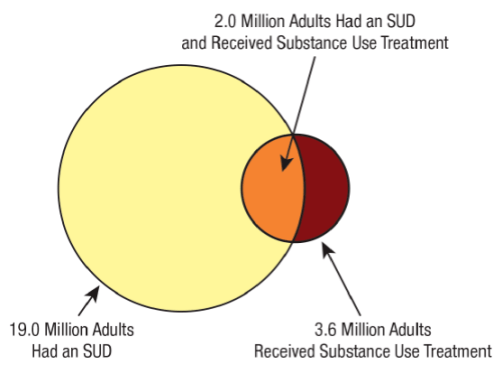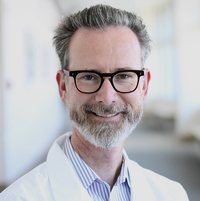
Addiction Disorders
What are Addiction Disorders?
Addiction disorders are chronic and relapsing conditions characterized by compulsive engagement in rewarding stimuli despite negative consequences. Also known as substance use disorders, addiction disorders involve the persistent use of substances such as drugs or alcohol, or engaging in certain behaviors, despite adverse physical, psychological, or social consequences. These disorders are characterized by a loss of control over substance use or behavior, along with a strong craving or compulsion to continue engaging in the addictive behavior.
Addiction is considered a complex condition that can affect various aspects of an individual’s life, including their physical health, mental well-being, relationships, and overall functioning. It is recognized as a brain disorder, as prolonged exposure to addictive substances or behaviors can lead to changes in brain structure and function, particularly in areas involved in reward, motivation, and self-control.
Approximately 19 million Americans aged 18 and older (7.8% of American adults) have a substance use disorder, but only 1 in 9 of Americans (11%) needing help receive treatment for a substance use disorder.

Based on data from 50,833 completed interviews from 2016 NSDUH respondents aged 18 or older (https://www.samhsa.gov/data/sites/default/files/NSDUH-DR-FFR2-2016/NSDUH-DR-FFR2-2016.htm).
The Addiction Medicine services at the Pacific Neuroscience Institute are dedicated to the assessment, treatment, and prevention of addiction and substance use issues including problems with drugs, alcohol, and/or prescription medications.
In addition to treating known drug and alcohol addictions, our doctors and clinicians also see many patients who do not have an addiction but need assistance in tapering off prescription medications (including pain medications) or have concerns that they may be at risk for addiction in the future.
Our doctors and clinicians can provide consultation in a discrete and non-judgmental setting to help you find out if you do or do not have a problem with a drug, alcohol, or prescription medication. Whether your problem is addiction or some other issue with a substance, our doctors and clinicians would like to help you be as safe and healthy as possible which may include stopping the substance completely, taking a temporary break from the substance, or changing or reducing your substance use.
Addiction Disorder Treatment Options
Our services include office-based treatment and assessment of addiction and substance use issues in a confidential and convenient clinic setting. This may include outpatient visits with our doctor and/or therapist, medications, counseling, and psychosocial support.
If needed, our doctors will coordinate referrals to additional outside services and resources in the community. Our clinicians will work to develop a treatment plan tailored to the specific needs of each patient drawing from the three categories of tools we have at our disposal: (1) medication, (2) counseling, and (3) support.
Medication
Medication may be prescribed to reduce withdrawal or cravings, to help prevent relapse, to partially block the effects of drugs or alcohol, and/or to treat symptoms or conditions that may trigger a relapse such as depression, anxiety, or pain.
Counseling
Counseling may be done with your doctor, a therapist, or both. Typically uses cognitive behavioral therapy to work on identifying triggers for relapse and work on changing thoughts and behaviors to counter potential triggers.
Support
Support the foundation for success is a supportive environment that will facilitate healthy habits and reduce exposure to drugs and alcohol. Emotional support is also important. Support can come from a variety of sources including self-help groups (AA, SMART Recovery), family/friends, and a supportive environment (sober living).
Our doctors are experts in using FDA-approved anti-addiction medications including:
- Buprenorphine (Suboxone®) for opioid use disorder
- Naltrexone for alcohol use disorder
- Monthly anti-addiction injections including long-acting depot buprenorphine (Sublocade®) for opioid use disorder or long-acting depot naltrexone (Vivitrol®) for alcohol or opioid use disorder.
We can help you to decide if a medication is right for treating your problem.
Some patients may be able to complete outpatient detoxification (at home) under our doctor’s supervision, but patients requiring more intensive inpatient detoxification or residential drug/alcohol rehabilitation services will be referred to outside community resources.
If you think you have a problems with drugs or alcohol, know you need to stop, or want to explore ways to cut back or reduce your use safely, schedule a visit with one of our clinicians to discuss options for a personalized treatment plan that fits your needs.
Treating Addiction Disorders with Ketamine
Patients with depression, anxiety, PTSD, end-of-life distress, chronic pain, drug/alcohol problems, and other conditions may be eligible for psychedelic-assisted therapy with ketamine.
Find out if you may have a problem
If you think you may have a problem with drugs, alcohol, and/or prescription medications, take the following quiz, print out the last page, and bring it in to review with one of our clinicians. https://www.drugabuse.gov/nmassist/
Addiction Disorders We Treat
Alcohol use disorder
Drugs and substance use disorder
Prescription medication problems
If you or someone you know is in crisis, call the National Suicide Prevention Lifeline (Lifeline) at 1-800-273-TALK (8255), or text the Crisis Text Line (text HELLO to 741741). Both services are free and available 24 hours a day, seven days a week. The deaf and hard of hearing can contact the Lifeline via TTY at 1-800-799-4889. All calls are confidential. Contact social media outlets directly if you are concerned about a friend’s social media updates or dial 911 in an emergency. Learn more on the Lifeline’s website or the Crisis Text Line’s website.

Virtual Video Visit
Our specialists have consultation openings for new patients in crisis anywhere in California. Request a virtual video visit by calling 310-582-7612.